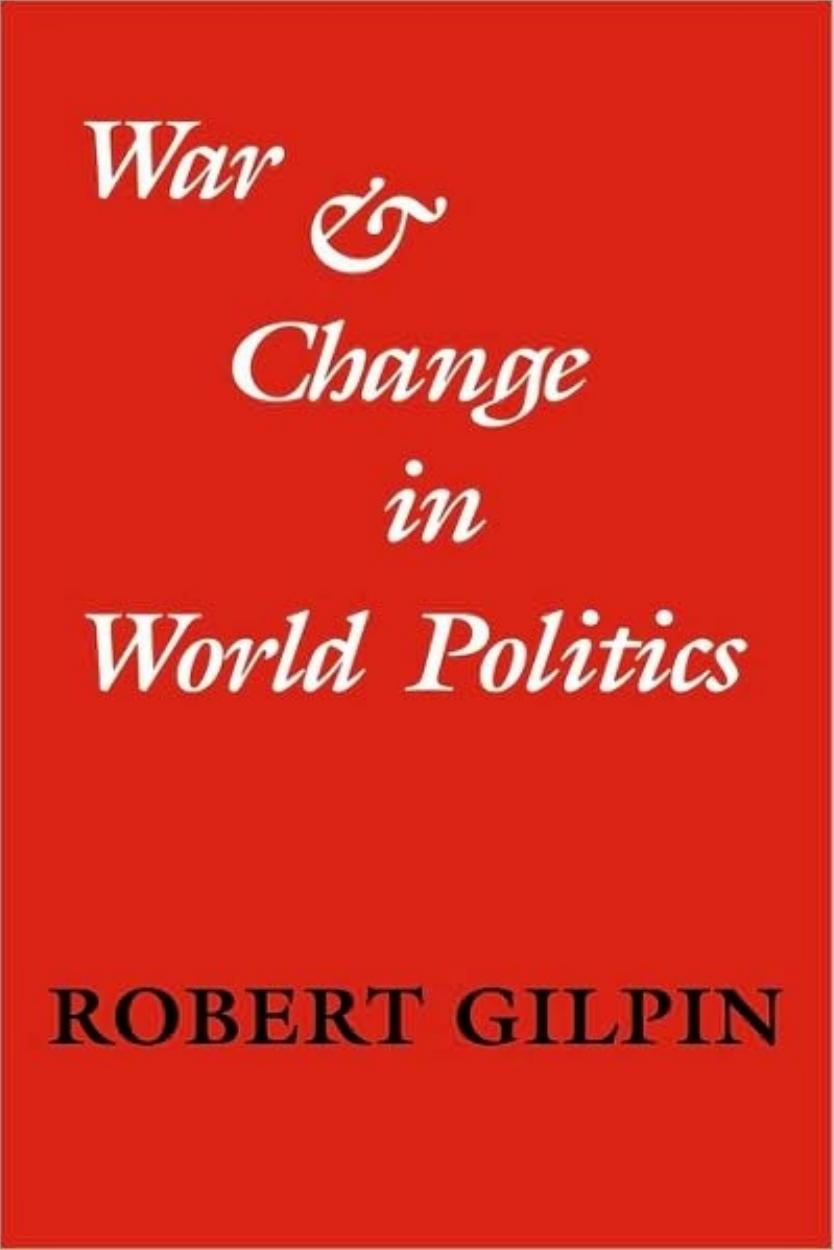War and Change in World Politics by Robert Gilpin

Author:Robert Gilpin
Language: eng
Format: epub, pdf
Publisher: Cambridge University Press
Thus the message of Adam Smith and other liberal free traders in their attacks on mercantilism was that empire was no longer cost-effective. In the industrial era, Great Britain had more to gain by exploiting her comparative industrial advantage and technological superiority in world markets than by acquiring an overseas empire. In the early nineteenth century, these doctrines of free trade and laissez-faire were accepted by Great Britainâs rising middle class. In time, a primary objective of British foreign policy became the creation of a world market economy based on free trade, freedom of capital movements, and a unified international monetary system. The achievement of this objective required primarily the creation and enforcement of a set of international rules protecting private property rights rather than the more costly and less beneficial task of conquering an empire.13 In the nineteenth century this responsibility fell mainly on Great Britain; in the middle of the twentieth century the United States assumed this task.
In the modern era, expansion by means of the world market economy and extension of political influence have largely displaced empire and territorial expansion as a means of acquiring wealth (McNeill, 1954; 1974). The principal reason for this change is that markets are much more efficient than other forms of human organization. Through specialization in the international division of labor, everyone can benefit from international exchange. The larger the market and the greater the volume of transactions, the greater the efficiency of the market and the overall maximization of wealth. Thus states have an incentive to participate in the international economy and share in the benefits of an enlarged trading system.
Although most states tend to benefit in absolute terms from the operation of the world market economy, the more efficient and more technologically advanced economies tend to benefit relatively more than other states. They enjoy higher rates of profit and more favorable terms of trade. As a consequence, a market economy tends, up to a point, to concentrate wealth in the more advanced economies. For this reason, the dominant economic (and military) powers in the modern era (Great Britain in the nineteenth century and the United states in the twentieth century) assumed the responsibility of organizing and defending the world market economy; they promoted free trade, provided investment capital, and supplied the international currency. In effect, they provided the public goods necessary for the functioning of efficient world markets because it was profitable for them to do so.
A distinguishing feature of the modern world has been that superior economic competitiveness and superior military power have tended to accompany one another. Great Britain and the United States have had an incentive to use their military power to create a competitive world market economy. In the past, on the other hand, economic efficiency and military efficiency did not necessarily coincide. Historically, in fact, as Montesquieu long ago observed, commercial powers in the premodern period usually became the prey of more aggressive military powers (Montesquieu, 1965, p. 47), and even today this still occurs.
Download
War and Change in World Politics by Robert Gilpin.pdf
This site does not store any files on its server. We only index and link to content provided by other sites. Please contact the content providers to delete copyright contents if any and email us, we'll remove relevant links or contents immediately.
Zero to IPO: Over $1 Trillion of Actionable Advice from the World's Most Successful Entrepreneurs by Frederic Kerrest(4511)
Machine Learning at Scale with H2O by Gregory Keys | David Whiting(4292)
Never by Ken Follett(3937)
Harry Potter and the Goblet Of Fire by J.K. Rowling(3848)
Ogilvy on Advertising by David Ogilvy(3604)
Shadow of Night by Deborah Harkness(3359)
The Man Who Died Twice by Richard Osman(3072)
Book of Life by Deborah Harkness(2931)
The Tipping Point by Malcolm Gladwell(2914)
Will by Will Smith(2908)
0041152001443424520 .pdf by Unknown(2843)
Purple Hibiscus by Chimamanda Ngozi Adichie(2824)
My Brilliant Friend by Elena Ferrante(2824)
How Proust Can Change Your Life by Alain De Botton(2805)
How to Pay Zero Taxes, 2018 by Jeff A. Schnepper(2646)
Hooked: A Dark, Contemporary Romance (Never After Series) by Emily McIntire(2548)
Rationality by Steven Pinker(2352)
Can't Hurt Me: Master Your Mind and Defy the Odds - Clean Edition by David Goggins(2323)
Borders by unknow(2303)
